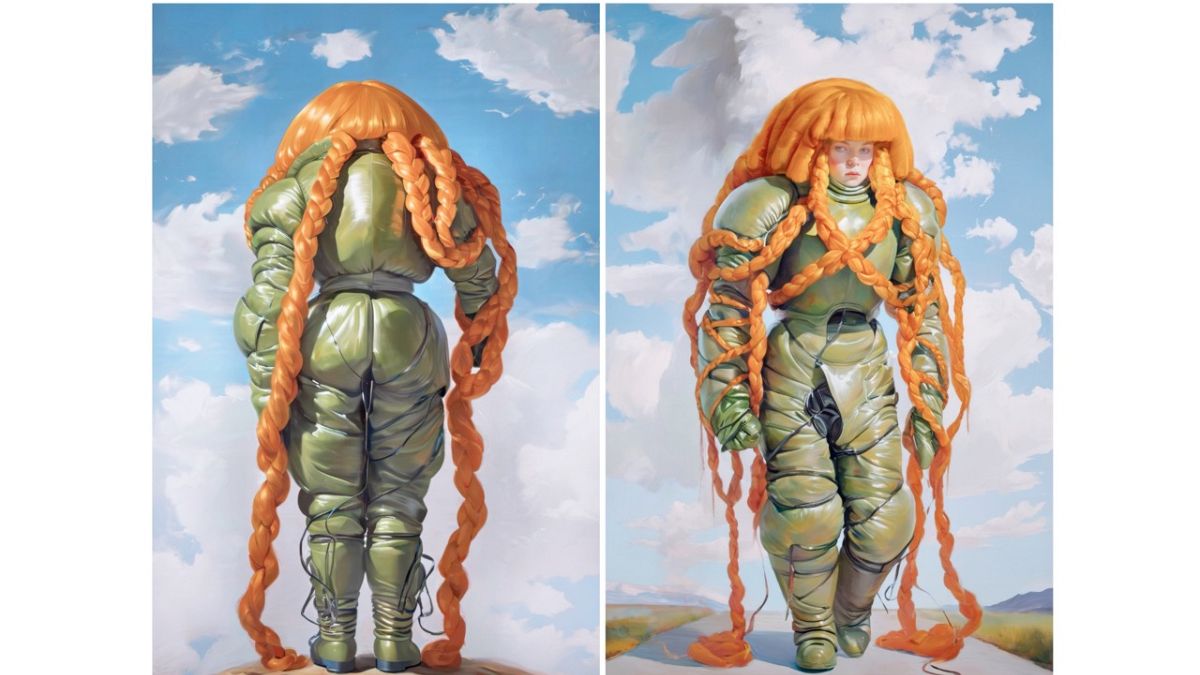Christie’s ‘Augmented Intelligence’ Sale: A Groundbreaking Auction for AI Art

Starting on February 20 and running until March 5, Christie’s in New York will host the pioneering ‘Augmented Intelligence’ sale, unveiling over 20 remarkable works from leading figures in the realm of AI art, including Refik Anadol, Pinar Van Arman, and Claire Silver. This event is particularly historic as it marks the first time a major auction house has dedicated an auction exclusively to AI-generated art.
The collection promises a rich variety of pieces, encompassing both NFTs and traditional physical artworks such as sculptures, paintings, and prints. Among the standout selections is ‘Emerging Faces’ (2017) by Pinar Van Arman, a captivating series of abstract portraits created by two AI agents that collaborate in a unique manner. One AI generates human faces while the other monitors the process, halting it upon detection of a face. The results are not only evocative but also haunting, representing some of the earliest instances of art autonomously painted by neural networks.
Adding an interactive twist to the sale, an impressive 3.7-meter-tall (12 feet) robot, designed by Alexander Reben, will be present at the Rockefeller Center gallery. As online bids increase, the robot will continuously paint a new section of the canvas in real time. Bidders can participate starting at just $100, witnessing the artwork evolve as the auction unfolds.
- Pindar Van Arman, Emerging Faces, 2017
In addition to these intriguing works, the husband-and-wife duo of Holly Herndon and Mat Dryhurst will showcase their pieces from the 2024 Whitney Biennial, titled ‘Embedding Study’ (2024). These creations feature a character in a bulky spacesuit, based on Herndon’s likeness and produced using a text-to-image AI model, further pushing the boundaries of artistic expression.
Despite the excitement surrounding the auction, it has not been without controversy. Reid Southern, an illustrator, recently published an open letter urging artists to refrain from auctioning works potentially produced using AI models trained on copyrighted material without appropriate permissions. The letter asserts, “Many of the works you are planning to put up for auction use AI models trained on copyrighted works. AI models and the companies behind them exploit human artists, utilizing their creations without consent or compensation to develop commercial AI products that compete directly with artists.” As of February 10, over 3,400 individuals have signed the letter, expressing their concerns regarding the ethical implications of AI in art creation.
In response to these concerns, Christie’s has stated on their platform, X, that the sale “challenges us to rethink the limits of artistic agency.” The auction house remains optimistic, projecting that the auction could generate at least $600,000 (€581,000), with cryptocurrency accepted as a form of payment for many of the lots.
Christie’s has established a significant presence in the digital art landscape, notably with a groundbreaking non-fungible token (NFT) auction in 2021. On March 11, 2021, the auction house made history by selling Beeple’s ‘Everydays: The First 5000 Days’ for an astonishing $69 million (€66.8 million), becoming the first major auction house to elevate NFTs to the global art stage. Subsequently, in November, Sotheby’s New York captured attention by selling a painting created by Ai-Da, a humanoid robot powered by AI, for an impressive $1,084,800 (€1 million).
